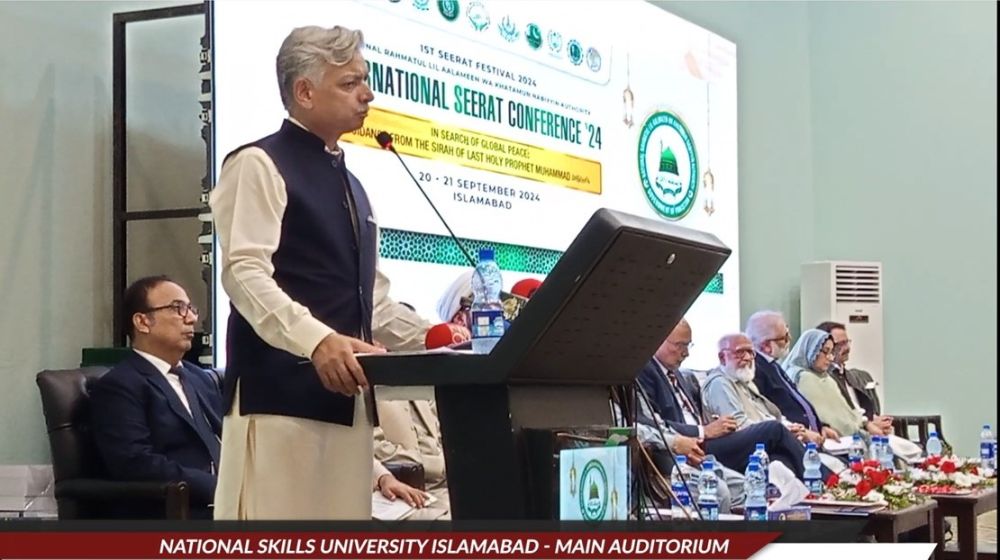National Textile University Faisalabad Pakistan – A Homeland of Excellence and Innovation in Textile Education
Posted 1 year ago
Since its establishment, the National Textile University (NTU) in Faisalabad has been a cornerstone of textile education and industry in Pakistan. Under the visionary leadership of Prof. Dr. Tanveer Hussain, who has served as the rector since July 2016, the university has experienced tremendous progress, underscored by significant national, international, and industrial collaborations. These partnerships have created invaluable opportunities for NTU graduates, positioning them globally at the forefront of the textile sector.
The recent School of Arts and Design Textile Designing Thesis Display Expo showcased NTU's excellence, underscoring its pivotal role in the textile industry. The event highlighted the university's innovative approaches and high-quality finished products, reflecting its status as a textile education and research leader.
The idea of establishing a world-renowned textile institute was first conceived by visionary industrialists in 1954. This vision was realized through a collaboration between the Government of Punjab and leading textile industrialists. The Government provided sixty-two acres of land in Faisalabad (then Lyallpur) free of cost, while Kohinoor Industries, Colony Textile Mills, Dawood Foundation, and Lyallpur Cotton Mills contributed Rs. 2.5 million for building and infrastructure. The UK Government supported this endeavor through the Colombo Plan, supplying equipment, machinery, and expert services. On October 12, 1959, Field Marshall Muhammad Ayub Khan, the then President of Pakistan, laid the foundation stone of the Institute of Textile Technology.
Managed by a Board of Trustees chaired by the Minister of Industries and including nominees from the donor companies, the institute's recurring expenses were met through a government-levied cess on the textile industry. In 1965, it was affiliated with the University of Engineering & Technology, Lahore, and renamed the National College of Textile Engineering. The first batch of graduate engineers graduated in 1966, and in 1973, the college's administrative control was transferred to the Federal Government, again renamed the National College of Textile Engineering.
In 1992, the college received a substantial boost with 650 million yen in assistance from the Japanese Government through the JICA program, which provided the latest machinery and equipment. This modernization was a significant step in enhancing the institution's capabilities. Finally, on November 15, 2002, the college was upgraded to the National Textile University through Ordinance No. CXXIV of 2002, promulgated by the President of the Islamic Republic of Pakistan. Being a Federal university, it is managed by the Federal Ministry of Education and Professional Training.
NTU has consistently been the premier institution for textile education in Pakistan. It fulfills the textile industry's technical and managerial human resource needs through a rigorous curriculum, industry internships, and close collaboration with industry stakeholders. This close relationship has maintained its relevance and excellence.
NTU is committed to transforming Pakistan's socio-economic development, particularly in the textile and clothing industry. Through its outstanding education, research, and eco-friendly innovation, the university aims to contribute significantly to sustainable socio-economic development and the welfare of humanity. Its mission is to pursue excellence in education, research, and innovation in areas of national importance, with a special emphasis on textiles and clothing.
Under the continued leadership of Prof. Dr. Tanveer Hussain, NTU is steadfast in its mission, driving progress and setting new standards in textile education and innovation. The university's achievements are a testament to the vision of its founders and the dedication of its current leadership and faculty. As NTU looks to the future, it remains a beacon of excellence, poised to make even greater contributions to the textile industry and beyond.





